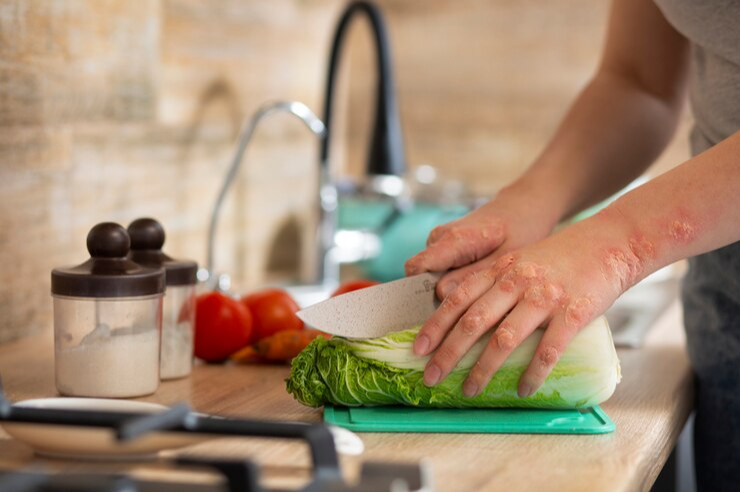The kitchen is where creativity meets necessity. By adopting eco-friendly kitchen hacks, you can reduce waste, lower your environmental footprint, and save money—all while keeping your culinary game strong. This guide delves into practical and sustainable methods that anyone can incorporate into their daily routine.

Smart Shopping: Start Sustainable Habits Early
The journey to an eco-friendly kitchen starts at the store. Thoughtful shopping is one of the simplest yet most impactful kitchen hacks:
- Plan Your Meals: Draft a meal plan to avoid buying items you won’t use. This reduces food waste and helps you stick to your budget.
- Support Local Produce: Buying locally-grown and seasonal fruits and vegetables minimizes transport emissions and supports farmers.
- Bring Your Own Bags: Reduce plastic waste by using reusable cloth or jute bags. For bulk items like grains, bring reusable jars or containers.
Waste-Free Food Storage
Storing food the right way ensures you use what you buy without spoilage. Here are eco-friendly kitchen hacks for food storage:
- Use Beeswax Wraps: Replace plastic wraps with reusable beeswax wraps to keep food fresh.
- Store Herbs Correctly: Wrap herbs like cilantro and parsley in damp cloths to prolong freshness.
- Label and Rotate: Label containers with dates and follow a “first in, first out” rule to use older items first.
Food Scraps as Hidden Gems
Food scraps are not trash—they’re opportunities. These kitchen hacks show how you can reuse scraps creatively:
- Make Stock: Boil vegetable peels, onion skins, and herb stems for a nutritious broth.
- Regrow Veggies: Re-sprout green onions, celery, or lettuce from their roots in water.
- Citrus Power: Use leftover citrus peels to create natural cleaning solutions or zest them into desserts.
Energy-Efficient Cooking Techniques
Cutting down on energy use while cooking benefits your wallet and the planet. Try these kitchen hacks:
- Use a Pressure Cooker: It cooks faster and consumes less energy than traditional pots.
- Batch Cooking: Prepare meals in bulk and freeze portions to save on energy during busy days.
- Match Pan to Burner: Ensure your cookware matches the burner size to avoid energy waste.
Sustainable Kitchen Essentials
Investing in reusable items is one of the most impactful eco-friendly kitchen hacks:
- Cloth Towels Over Paper Towels: Opt for washable, durable cloth towels to minimize paper waste.
- Reusable Straws and Cutlery: Replace single-use plastics with stainless steel or bamboo alternatives.
- Silicone Baking Mats: These mats replace parchment paper and last for years.
Composting: A Green Thumb’s Best Friend
Turn your organic waste into gold for your garden with these kitchen hacks:
- Set Up a Compost Bin: Place a small compost bin in your kitchen for easy access.
- Compost Tea: Use composted material to create nutrient-rich liquid fertilizer for plants.
- Eggshell Uses: Crush eggshells for compost or to sprinkle around plants as a natural pest deterrent.
DIY Cleaning Solutions for a Greener Kitchen
Many commercial cleaners are packed with harmful chemicals. These natural kitchen hacks ensure a sparkling, eco-friendly kitchen:
- Vinegar and Baking Soda: Mix for a powerful cleaner that tackles grease and clogs.
- Lemon-Peel Infusion: Steep lemon peels in vinegar for a refreshing, natural cleaning spray.
- Reusable Cleaning Tools: Use old clothes as rags instead of disposable wipes.
Zero-Waste Snacks and Meals
Creating zero-waste snacks and meals is easier than you think with these kitchen hacks:
- Homemade Snacks: Prepare granola bars or trail mix to eliminate packaged snack waste.
- Repurpose Leftovers: Transform last night’s dinner into a new dish, like turning roast vegetables into a soup.
- DIY Plant Milk: Make almond or oat milk at home to avoid packaged options.
Upcycle Everyday Items
Think before you toss—upcycling is one of the most creative kitchen hacks:
- Jar Makeovers: Use old jars to store spices, grains, or homemade sauces.
- Egg Cartons for Gardening: Start seedlings in egg cartons before transferring them to your garden.
- Wine Bottles as Décor: Repurpose empty wine bottles into vases or candle holders.
Water Conservation in the Kitchen
Water is a precious resource. These kitchen hacks ensure you use it wisely:
- Reuse Rinse Water: Use water from rinsing veggies to hydrate your plants.
- Install Low-Flow Faucets: Save gallons of water with an eco-friendly faucet.
- Scrape Instead of Rinse: Scrape food off plates instead of rinsing before loading into the dishwasher.
Conclusion

Adopting eco-friendly kitchen hacks isn’t just about helping the environment—it’s about creating a sustainable, efficient, and cost-effective kitchen. Start small, and let these changes grow into a lifestyle. Each hack brings you closer to a greener planet and a smarter kitchen.
What are your favorite kitchen hacks for sustainability? Share your tips and tricks in the comments below!
Feel free to contact us to find out more about us and our services, explore who we are, or discuss advertising opportunities. Don’t overlook subscribing to our magazine for monthly updates, exclusive insights, and more exciting content!




